Premium Only Content
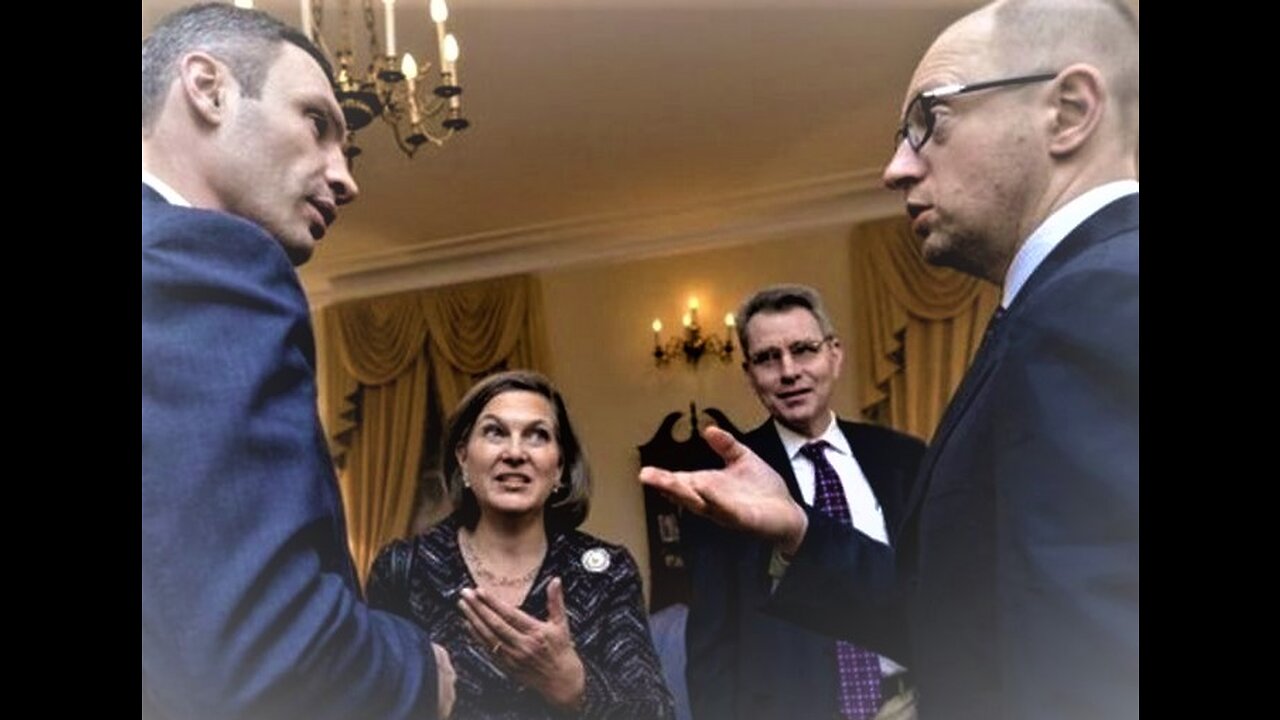
Victoria Nuland's incriminating leaked PHONECALL
‘Fuck the EU’: US diplomat Victoria Nuland's phonecall leaked
The assistant US secretary of state, Victoria Nuland, has apologized after her phone conversation about the political crisis in Ukraine was leaked on the internet.
The call between Nuland and a US ambassador focused on the future of the country if it gains a new government. Nuland declined to comment on 'private diplomatic conversations'
Ukraine crisis: Transcript of leaked Nuland-Pyatt call
Victoria Nuland and Geoffrey Pyatt, Kiev, 10 December 2014
Leaked phone call on Ukraine lays bare Washington’s gangsterism
10 February 2014
The US media has shown remarkably little interest in the tape of a telephone call between Victoria Nuland, the State Department’s top official on Europe and Eurasia, and the US ambassador to Ukraine, Geoffrey Pyatt, which was posted on YouTube and became the subject of international controversy beginning last Thursday.
What coverage has been provided has mainly focused on Ms. Nuland’s use of the decidedly undiplomatic phrase “Fuck the EU” in spelling out Washington’s attitude to the role being played by its European partners in the crisis that has gripped Ukraine for nearly three months.
The media’s other slant on the story has dutifully echoed the State Department’s own attempt to deflect the controversy by denouncing the public airing of a private conversation as “a new low in Russian trade-craft.”
The Russian government has vigorously denied the US charge that Moscow is responsible for the leak.
The accusation is, in any case, rather rich coming from a government that has been exposed as spying on the phone conversations of hundreds of millions of people in the US and around the world.
The real political significance of the phone conversation between Nuland and Pyatt is left largely in the shade.
This is no accident, as the call provides a devastating exposure of the criminal and imperialist character of US policy in Ukraine and debunks the phony “democratic” pretensions of the Obama administration.
In his State of the Union speech last month, Obama declared: “In Ukraine, we stand for the principle that all people have the right to express themselves freely and peacefully, and to have a say in their country’s future.”
What the tape makes clear, however, is that Washington is employing methods of international gangsterism, including violence, to effect a political coup aimed at installing a regime that is fully subordinate to US geo-strategic interests.
This operation has no more to do with democracy than the US-orchestrated coups in countries like Chile and Argentina some 40 years ago.
The precise goal of US efforts is to shift political power into the hands of a collection of Western-aligned Ukrainian oligarchs who enriched themselves off of the private appropriation—theft—of state property carried out as part of the Stalinist bureaucracy’s dissolution of the Soviet Union in 1991.
In doing so, it aims to turn Ukraine into a US imperialist beachhead on the very border of Russia, whose territory it also wants to divide and subjugate to neocolonial status as part of its drive to assert American hegemony throughout the strategic landmass of Eurasia.
The Nuland-Pyatt conversation is concerned with the nuts and bolts of this venture. They involve the whipping up of anti-Russian Ukrainian nationalism and aid to far-right political forces that serve as a battering ram against the government of President Viktor Yanukovych.
The Ukraine president’s turn toward a deal with Russia rather than integration into the European Union was the spark for the current campaign for regime-change.
Nuland makes clear that behind the scenes, Washington is dictating which leaders of the opposition—referred to as “the big three”—should enter the government to swing it behind Washington and what role the others will play.
Arseniy Yatsenyuk of the Fatherland Party, who served as minister of economy and minister of foreign affairs in the ill-fated government brought to power by the so-called Orange Revolution orchestrated by Washington in 2004, is identified by the assistant secretary of state as “the guy who’s got the economic experience, the governing experience.”
Nuland proposes that two other prominent right-wing leaders of the anti-Yanukovych protests—ex-boxer Vitali Klitschko, the chief of the Ukrainian Democratic Alliance for Reforms, or Udar (an acronym that means “punch”), and Oleh Tyahnybok, leader of the neo-fascist Svoboda party—remain “on the outside,” continuing to whip up right-wing mobs. Yatsenyuk, she adds, “needs to be talking to them four times a week.”
She and the ambassador refer to two of these figures as “Yats” and “Klitsch,” the kind of names normally reserved for poodles.
During her latest visit to Kiev, which coincided with the leaking of the phone call, Nuland met and posed publicly with the three opposition leaders mentioned in the taped conversation—“Yats,” “Klitsch” and the man who is playing the decisive role in the organization of the violent protests in Maidan Square, Svoboda leader Tyahnybok.
Tyahnybok was reportedly banned last year from entering the US because of rabidly anti-Semitic speeches praising his followers for striking fear in “the Moscow-Jewish mafia ruling Ukraine,” and hailing World War II-era Ukrainian fascists for fighting Russians, Germans “kikes and other scum.” This, however, did not give Nuland pause.
During her previous visit to Ukraine in December 2013, Nuland, the grand-daughter of Jewish immigrants who fled to America to escape pogroms in Tsarist Russia, provided a uniquely repellent spectacle, handing out cookies in Maidan square to Svoboda thugs who venerate the mass murderers of Hitler’s SS.
Nuland personifies the continuity of US foreign policy, from the crimes of the Bush administration to the deepening of these crimes under Obama.
She served as a chief foreign policy advisor to Dick Cheney when the then-vice-president was spearheading the policies of aggressive war, rendition and torture abroad and erecting the infrastructure of a police state at home.
Her husband is Robert Kagan, the right-wing foreign policy pundit who served as the founding chairman of the Project for a New American Century, the neo-conservative Washington think tank that played a key role in the political and ideological preparation for the wars against Iraq and Afghanistan.
Today she promotes a similar policy on the very borders of nuclear-armed Russia. The tensions which this has engendered are reflected in the “Fuck the EU” remark. In pursuit of its geo-strategic interests, Washington is growing increasingly impatient over the reluctance of Germany, at least to this point, to go for a frontal confrontation with Moscow.
This time around, the aggressive policy of US imperialism enjoys the backing of various pseudo-left elements who swallow whole the slogans of democracy and humanitarianism, ranging from the post-modernist charlatan Slavoj Zizek to the International Socialist Organization, which manages to publish a lengthy report on the events in Ukraine without once mentioning the machinations of Washington.
Washington’s incendiary policy poses a threat of civil war in Ukraine and increases the danger of a global conflagration.
The Ukrainian working class cannot extricate itself from this crisis under the wing of either Yanukovych or his right-wing opponents, which represent rival factions of oligarchs who agree on destroying the living standards and rights of the working population.
The workers will find a way forward only by building their own independent mass socialist movement, implacably opposed to imperialism and committed to the unification of their struggles with those of workers in Russia, Europe and the rest of the world.
A bugged phone conversation in which a senior US diplomat disparages the EU over the Ukraine crisis has been posted online.
The conversation between Assistant Secretary of State Victoria Nuland and the US Ambassador to Ukraine, Geoffrey Pyatt, appeared on YouTube on Thursday. It is not clearly when the alleged conversation took place.
Here is a transcript, with analysis by BBC diplomatic correspondent Jonathan Marcus:
Voice thought to be Nuland's: What do you think?
Jonathan Marcus:
At the outset it should be clear that this is a fragment of what may well be a larger phone conversation. But the US has not denied its veracity and has been quick to point a finger at the Russian authorities for being behind its interception and leak.
Voice thought to be Pyatt's:
I think we're in play. The Klitschko [Vitaly Klitschko, one of three main opposition leaders] piece is obviously the complicated electron here. Especially the announcement of him as deputy prime minister and you've seen some of my notes on the troubles in the marriage right now so we're trying to get a read really fast on where he is on this stuff. But I think your argument to him, which you'll need to make, I think that's the next phone call you want to set up, is exactly the one you made to Yats [Arseniy Yatseniuk, another opposition leader]. And I'm glad you sort of put him on the spot on where he fits in this scenario. And I'm very glad that he said what he said in response.
Jonathan Marcus:
The US says that it is working with all sides in the crisis to reach a peaceful solution, noting that "ultimately it is up to the Ukrainian people to decide their future". However this transcript suggests that the US has very clear ideas about what the outcome should be and is striving to achieve these goals. Russian spokesmen have insisted that the US is meddling in Ukraine's affairs - no more than Moscow, the cynic might say - but Washington clearly has its own game-plan. The clear purpose in leaking this conversation is to embarrass Washington and for audiences susceptible to Moscow's message to portray the US as interfering in Ukraine's domestic affairs.
Nuland:
Good. I don't think Klitsch should go into the government. I don't think it's necessary, I don't think it's a good idea.
Pyatt:
Yeah. I guess... in terms of him not going into the government, just let him stay out and do his political homework and stuff. I'm just thinking in terms of sort of the process moving ahead we want to keep the moderate democrats together. The problem is going to be Tyahnybok [Oleh Tyahnybok, the other opposition leader] and his guys and I'm sure that's part of what [President Viktor] Yanukovych is calculating on all this.
Nuland:
[Breaks in] I think Yats is the guy who's got the economic experience, the governing experience. He's the... what he needs is Klitsch and Tyahnybok on the outside. He needs to be talking to them four times a week, you know. I just think Klitsch going in... he's going to be at that level working for Yatseniuk, it's just not going to work.
Pyatt:
Yeah, no, I think that's right. OK. Good. Do you want us to set up a call with him as the next step?
Nuland:
My understanding from that call - but you tell me - was that the big three were going into their own meeting and that Yats was going to offer in that context a... three-plus-one conversation or three-plus-two with you. Is that not how you understood it?
Pyatt:
No. I think... I mean that's what he proposed but I think, just knowing the dynamic that's been with them where Klitschko has been the top dog, he's going to take a while to show up for whatever meeting they've got and he's probably talking to his guys at this point, so I think you reaching out directly to him helps with the personality management among the three and it gives you also a chance to move fast on all this stuff and put us behind it before they all sit down and he explains why he doesn't like it.
Nuland:
OK, good. I'm happy. Why don't you reach out to him and see if he wants to talk before or after.
Pyatt:
OK, will do. Thanks.
Nuland:
OK... one more wrinkle for you Geoff. [A click can be heard] I can't remember if I told you this, or if I only told Washington this, that when I talked to Jeff Feltman [United Nations Under-Secretary-General for Political Affairs] this morning, he had a new name for the UN guy Robert Serry did I write you that this morning?
Jonathan Marcus:
An intriguing insight into the foreign policy process with work going on at a number of levels:
Various officials attempting to marshal the Ukrainian opposition; efforts to get the UN to play an active role in bolstering a deal; and (as you can see below) the big guns waiting in the wings - US Vice-President Joe Biden clearly being lined up to give private words of encouragement at the appropriate moment.
Pyatt:
Yeah I saw that.
Nuland:
OK. He's now gotten both Serry and [UN Secretary General] Ban Ki-moon to agree that Serry could come in Monday or Tuesday. So that would be great, I think, to help glue this thing and to have the UN help glue it and, you know, Fuck the EU.
Jonathan Marcus:
Not for the first time in an international crisis, the US expresses frustration at the EU's efforts. Washington and Brussels have not been completely in step during the Ukraine crisis. The EU is divided and to some extent hesitant about picking a fight with Moscow. It certainly cannot win a short-term battle for Ukraine's affections with Moscow - it just does not have the cash inducements available. The EU has sought to play a longer game; banking on its attraction over time. But the US clearly is determined to take a much more activist role.
Pyatt:
No, exactly. And I think we've got to do something to make it stick together because you can be pretty sure that if it does start to gain altitude, that the Russians will be working behind the scenes to try to torpedo it. And again the fact that this is out there right now, I'm still trying to figure out in my mind why Yanukovych (garbled) that. In the meantime there's a Party of Regions faction meeting going on right now and I'm sure there's a lively argument going on in that group at this point. But anyway we could land jelly side up on this one if we move fast. So let me work on Klitschko and if you can just keep... we want to try to get somebody with an international personality to come out here and help to midwife this thing. The other issue is some kind of outreach to Yanukovych but we probably regroup on that tomorrow as we see how things start to fall into place.
Nuland:
So on that piece Geoff, when I wrote the note [US vice-president's national security adviser Jake] Sullivan's come back to me VFR [direct to me], saying you need [US Vice-President Joe] Biden and I said probably tomorrow for an atta-boy and to get the deets [details] to stick. So Biden's willing.
Pyatt:
OK. Great. Thanks.
Jonathan Marcus:
Overall this is a damaging episode between Washington and Moscow. Nobody really emerges with any credit. The US is clearly much more involved in trying to broker a deal in Ukraine than it publicly lets on. There is some embarrassment too for the Americans given the ease with which their communications were hacked. But is the interception and leaking of communications really the way Russia wants to conduct its foreign policy ? Goodness - after Wikileaks, Edward Snowden and the like could the Russian government be joining the radical apostles of open government? I doubt it. Though given some of the comments from Vladimir Putin's adviser on Ukraine Sergei Glazyev - for example his interview with the Kommersant-Ukraine newspaper the other day - you don't need your own listening station to be clear about Russia's intentions. Russia he said "must interfere in Ukraine" and the authorities there should use force against the demonstrators.
-
 9:29
9:29
AlaskanBallistics
3 hours ago $0.75 earnedWyoming Suppressors and Rifles at Shot Show 2025
17.9K2 -
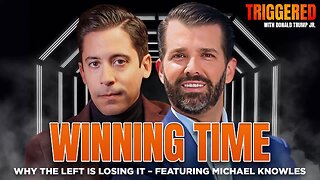 1:06:40
1:06:40
Donald Trump Jr.
7 hours agoThe Left is Taking one L After Another, Live with Michael Knowles | Triggered Ep. 217
110K87 -
 47:17
47:17
Kimberly Guilfoyle
7 hours agoWoke Gets DOGE’d, Live with AJ Rice & Jarrett Stepman | Ep. 197
82.6K32 -
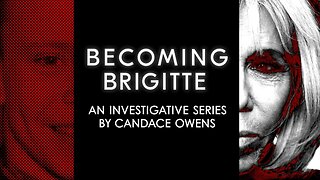 20:11
20:11
Candace Show Podcast
5 hours agoBecoming Brigitte: Candace Owens x Xavier Poussard | Ep 6
136K275 -
 8:25:38
8:25:38
Dr Disrespect
10 hours ago🔴LIVE - DR DISRESPECT - ELDEN RING DLC - REVENGE
159K19 -
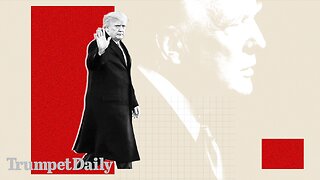 54:22
54:22
LFA TV
1 day agoThe End of the Trans-Atlantic Alliance | TRUMPET DAILY 2.17.25 7PM
26.8K3 -
 55:56
55:56
BIG NEM
8 hours agoUGLY COCO: The Rapper Who’s Tried EVERY PSYCHEDELIC 🌌
5.83K -
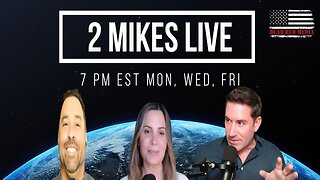 1:42:51
1:42:51
2 MIKES LIVE
6 hours ago2 MIKES LIVE #181 Deep Dive Monday!
14K1 -

Quite Frankly
7 hours ago"Low Tide at The Pier: Munich Tears, World Gov Summit, More..." 2/17/25
25.5K3 -
 27:44
27:44
The Based Mother
7 hours ago $0.43 earnedBOOK BAN LIES. Karen England and the MSM fairy tale that books are being “banned” by fascists
10.4K3